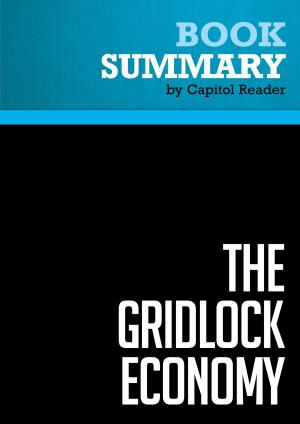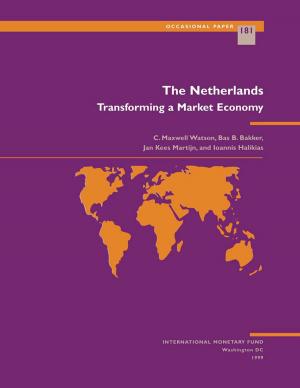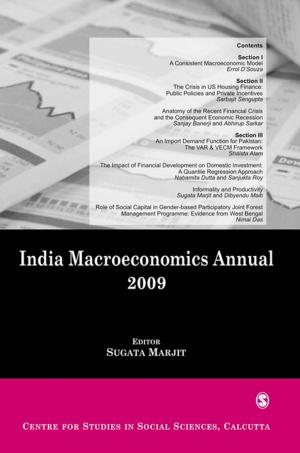Voodoo Economics and the Vanishing American Dream
Business & Finance, Business Reference, Government & Business, Economics, Macroeconomics| Author: | Bruce Kimzey | ISBN: | 9781301815661 |
| Publisher: | Bruce Kimzey | Publication: | October 6, 2012 |
| Imprint: | Smashwords Edition | Language: | English |
| Author: | Bruce Kimzey |
| ISBN: | 9781301815661 |
| Publisher: | Bruce Kimzey |
| Publication: | October 6, 2012 |
| Imprint: | Smashwords Edition |
| Language: | English |
Voodoo Economics is the brainchild of economist Arthur Laffer, and the offspring of President Ronald Reagan, who adopted the Laffer theory of supply-side economics during his Presidential run in 1980. It was first labeled “voodoo economics” by Reagan’s then primary opponent George H.W. Bush, but has since become the basis for all Republican economic policy over the past thirty years. As a theory, it professes to believe in free markets, low taxes and low government spending and regulations. In practice, it has been the vehicle for the largest and longest upward transfer of economic wealth and political power in the history of the nation. It results in economic policy that demonizes the poor, dismisses the middle class, and deifies the rich. Economic problems are seen as the result of government spending for the poor and middle class, and solutions require continual new tax reductions on investment incomes, and the reduction and/or elimination of government spending programs labeled as “entitlements”.
“Voodoo Economics” places the interests of the wealthy first, and will be defined as the belief that “You can achieve the economic outcomes you want through wishful thinking” or “If you say something often enough and long enough it will be accepted as truth even if there is little or no evidence to support it’s claims.” Examples of this thinking are “Tax cuts pay for themselves”, “The rich now pay an unfair and rising tax burden”, “A reduction in tax rates (both corporate and personal) is the best way to stimulate the economy and create jobs”, “If we eliminate the income tax on dividends and capital gains it will lead to stimulus and job creation”, and “Tax increases on those who earn over $250,000 will destroy jobs because small business owners who create most of the nation’s jobs fall primarily into that category.”
The systematic transfer of income and wealth to the top 3 percent of the population has eroded the economic and political power of the middle class and reduced the hope of achieving the American Dream of home ownership, secure jobs with good pay, the opportunity for a higher education, and a comfortable and affordable retirement.
Voodoo Economics is the brainchild of economist Arthur Laffer, and the offspring of President Ronald Reagan, who adopted the Laffer theory of supply-side economics during his Presidential run in 1980. It was first labeled “voodoo economics” by Reagan’s then primary opponent George H.W. Bush, but has since become the basis for all Republican economic policy over the past thirty years. As a theory, it professes to believe in free markets, low taxes and low government spending and regulations. In practice, it has been the vehicle for the largest and longest upward transfer of economic wealth and political power in the history of the nation. It results in economic policy that demonizes the poor, dismisses the middle class, and deifies the rich. Economic problems are seen as the result of government spending for the poor and middle class, and solutions require continual new tax reductions on investment incomes, and the reduction and/or elimination of government spending programs labeled as “entitlements”.
“Voodoo Economics” places the interests of the wealthy first, and will be defined as the belief that “You can achieve the economic outcomes you want through wishful thinking” or “If you say something often enough and long enough it will be accepted as truth even if there is little or no evidence to support it’s claims.” Examples of this thinking are “Tax cuts pay for themselves”, “The rich now pay an unfair and rising tax burden”, “A reduction in tax rates (both corporate and personal) is the best way to stimulate the economy and create jobs”, “If we eliminate the income tax on dividends and capital gains it will lead to stimulus and job creation”, and “Tax increases on those who earn over $250,000 will destroy jobs because small business owners who create most of the nation’s jobs fall primarily into that category.”
The systematic transfer of income and wealth to the top 3 percent of the population has eroded the economic and political power of the middle class and reduced the hope of achieving the American Dream of home ownership, secure jobs with good pay, the opportunity for a higher education, and a comfortable and affordable retirement.















